By | | Published: 10:03, 06 February 2014
When physicists at CERN – the European Organisation for Nuclear Research – required help in managing the terabytes of information gathered in the course of their ground-breaking research work, they turned to young, London-based company, Big Data Partnership. “We provided training to about 100 of their scientists,�? says Pinal Gandhi, who founded the business along with Mike Merritt-Holmes and Tim Seears .
I’m speaking to Gandhi and Merritt-Holmes at their headquarters in East London, just a stone’s throw from the now famous Old Street/City Road traffic junction that inspired area’s unofficial designation as ‘Silicon Roundabout’. Like many of the newly-minted technology, media and creative arts businesses working in this intense cluster, Big Data Partnership is working out of offices shared with other early stage ventures. And for millisecond it seems counter-intuitive that a long-established organisation such as CERN – peopled as it is with some of the best scientific brains in the world – should buy training from a company that is just two years old.
But only for a millisecond. If you want to collide protons into one another or seek out and find the Higgs Boson particle, the physicists at CERN have skillsets to spare, but that doesn’t of course, mean they are totally familiar with the technologies and practices associated with cutting edge data management and analysis. Big Data Partnership, on the other hand, is entirely focused on helping a growing list of clients to unlock the value of the data flowing within their organisations. “That is our niche. It’s something we are expert in, so we are an obvious choice when organisations require help,�? says Mike Meritt-Holmes.
The bigger point here is that large organisations – including CERN – don’t necessarily have the in-house skillsets that enable them to gather, collate, analyse and ultimately use the information they have at their disposal. This in turn is providing opportunities for third parties that really do understand the potential of big data.
Big Data Partnership provides a range of services – including consultancy, training and implementation -with a remit that runs from data gathering and analytics technologies through to strategic planning. In the space of just couple of years it has worked with clients across a range of industries, including banking, oil and minerals, utilities, media and games. Confidentiality agreements apply but the anonymous ‘case studies’ festoon the company’s website. And as Merritt Holmes observes: “there is now interest in ‘big data;’ from across all the verticals. “
It’s not just a question of customer data. In addition to the to the manifestly non-consumer-facing p CERN, the Big Data Partnership has worked with clients in the oil exploration industry on systems to provide better and faster results from Seismic surveys. “The work we carried out has helped the company to better decisions on where to look for oil,�? adds Merritt-Holmes.
And the good news for niche in this market is that is probably huge scope for growth. As Merritt Holmes sees it certain sectors – notably telecoms, retail, and banking – are ahead of the game while others are realising the value of the big data revolution and are playing catch up.
The key to success is have the credentials and experience that potential clients are looking for. Merritt-Holmes & Gandhi had a background in consultancy and systems integration prior to launching their business and they have subsequently made a point of establishing partnerships with key vendors in the field. According to Merritt-Holmes, because of this experience, the company doesn’t have to prove its credentials when it pitching for work from, say, a big telecoms or oil company. “It’s more a case of them coming to us.�?
But there are challenges – not least in terms of finding the skilled employees required to grow the business further. The business already has former employees of NASA and CERN working for it, but there is constant demand for new talent.
The term ‘big data’ implies ‘big organisations’ but paradoxically the learning curve that corporate are currently climbing has the potential to create a great many opportunities for third parties, including start-ups and early stage business with the right mix of skills.
###
This article originally appeared at and is reproduced here.

Comments are closed.